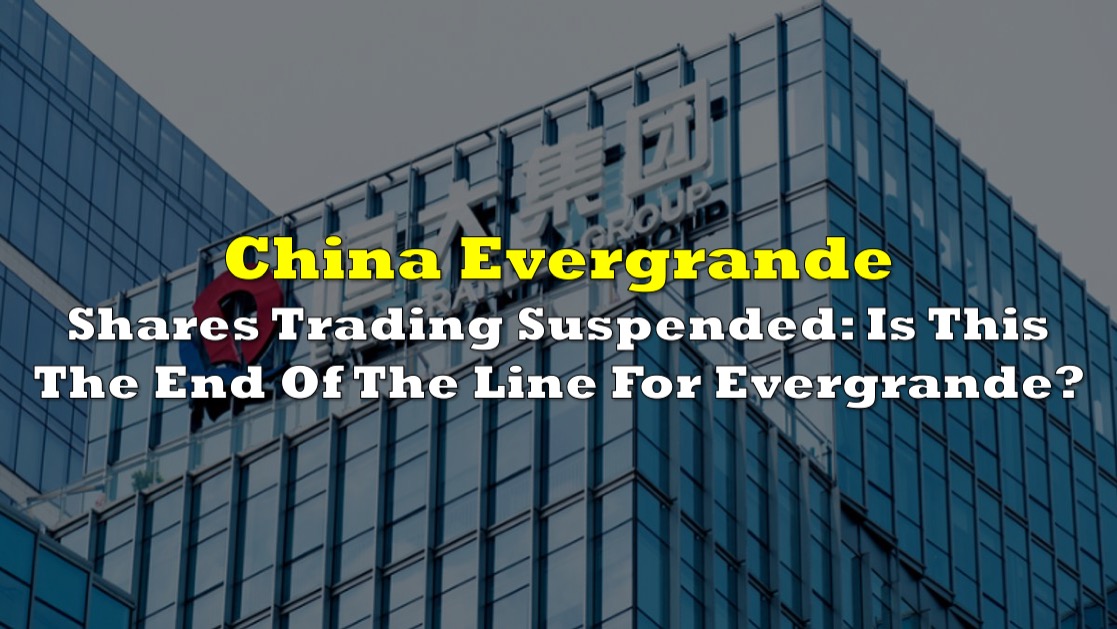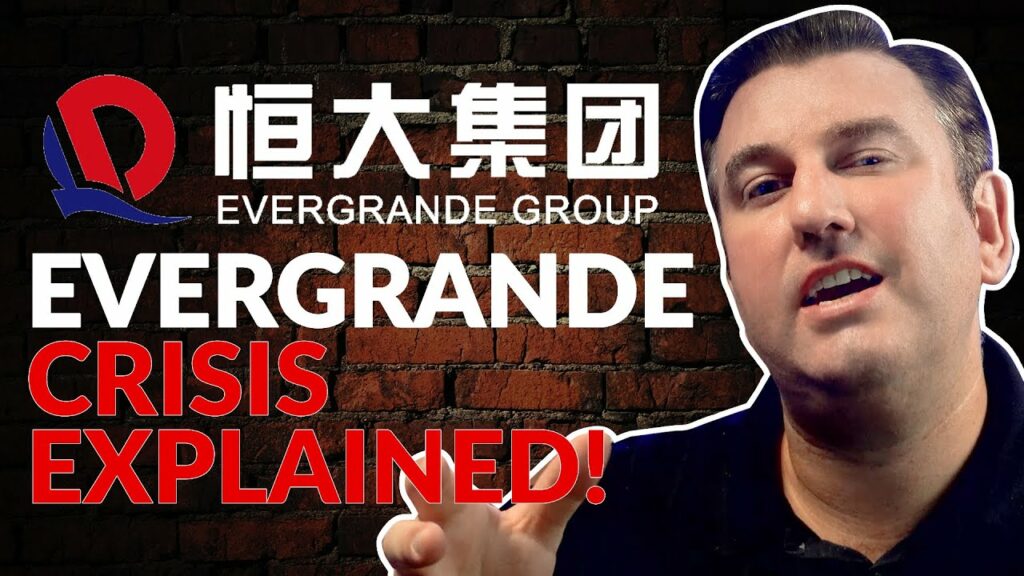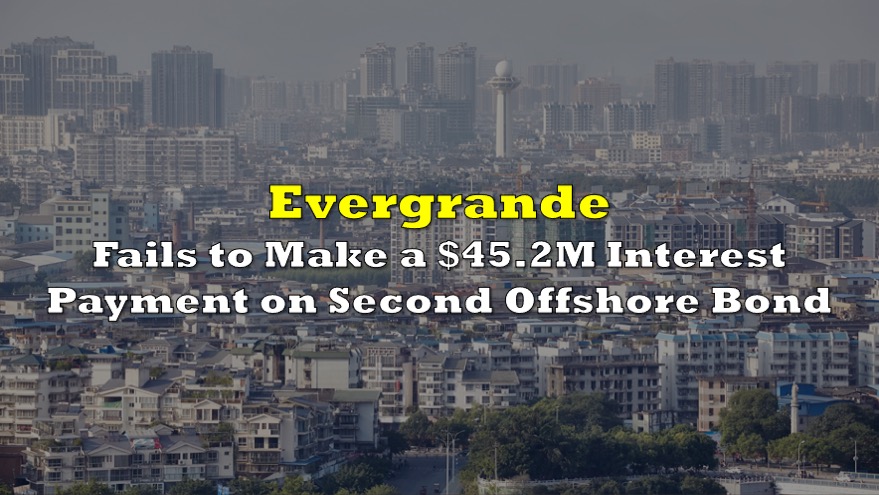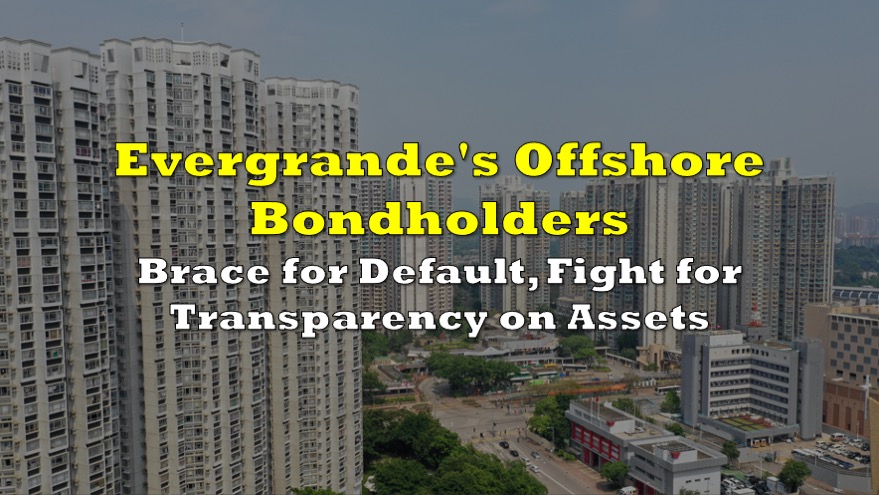Trading of shares in the embattled Chinese developer Evergrande Group and its two subsidiaries has been suspended in Hong Kong due to mounting concerns about their ability to restructure their massive debt and prevent the liquidation of the company.
Evergrande, which holds the title of being the world’s most indebted real estate developer with total liabilities of $328 billion as of June, did not provide a reason for the suspension in its filing to the stock exchange.
The company’s troubles escalated this week following a warning on Sunday that its offshore debt restructuring plan was in jeopardy due to a regulatory investigation into its main subsidiary in mainland China.
Two of Evergrande’s subsidiaries, China Evergrande New Energy Vehicle Group and Evergrande Property Services Group, also ceased trading without offering any explanation for the suspensions.
These developments come on the heels of recent news that Chinese authorities had initiated their first criminal investigation into Evergrande since its default on its debt nearly two years ago.
Hengda Real Estate, Evergrande’s flagship unit in mainland China, stated on Monday that it was actively working with all parties to address the debt risks, as it had missed payments on a 4 billion yuan ($547 million) bond.
While there was a brief moment of relief for investors last month when Evergrande reported reduced losses for the first half of the year due to increased revenue driven by a temporary surge in China’s property market, subsequent news has been consistently negative. An increasing number of investors are now reportedly considering winding up the company if a new survival plan is not forthcoming.
Formerly the second-largest real estate company in China, Evergrande’s default in 2021 triggered a crisis in the property sector that continues to have ripple effects throughout the broader economy.
Evergrande has been attempting a government-supervised debt restructuring and unveiled a multi-billion dollar plan to reach an agreement with its international creditors. It also recently filed for bankruptcy protection in the United States as part of this process.
If the offshore debt restructuring fails and Evergrande is unable to negotiate a new deal with its creditors, the company could face liquidation, leading to the sale of its assets and the cessation of all operations.
These latest developments coincide with the news that Hui Ka Yan, the billionaire chairman of China Evergrande Group, has been placed under police control, although the exact reasons for this measure remain unclear. It’s important to note that residential surveillance does not imply formal detention or charges, but it does restrict Hui’s movements and communication with others, as per China’s Criminal Procedure Law.
This move signifies that the ongoing saga involving the world’s most indebted developer has taken a new turn, involving the criminal justice system. Earlier this month, authorities detained some staff from Evergrande’s wealth management unit, and two former executives were reportedly held, raising further questions about the company’s fate after recent setbacks to its restructuring plan rocked financial markets and increased the risk of liquidation.
For Hui, who once controlled one of the world’s largest fortunes when Evergrande’s shares peaked in 2017, this development marks a significant fall from grace. Previously viewed as one of the most politically influential businessmen in China, with interests ranging from electric cars to soccer, he has now become the most prominent casualty of President Xi Jinping’s crackdown on excessive leverage and speculation in the real estate sector.
Evergrande’s troubles have been at the center of a prolonged property crisis that has had a negative impact on the Chinese economy and eroded confidence in the housing market. The company recently announced the cancellation of key creditor meetings and the need to revisit its plan to restructure its offshore debt. Additionally, it disclosed its failure to meet regulatory requirements for issuing new bonds, a crucial element of the debt overhaul, while its mainland unit was unable to repay an onshore note.
Evergrande faces a court hearing in Hong Kong on October 30, where a winding-up petition could potentially force it into liquidation.
China’s real estate sector, which once contributed up to 30% of the nation’s GDP, suffered a blow from Evergrande’s default, causing turmoil in property markets and financial systems.
Since Evergrande’s collapse, other major Chinese developers like Kasia, Fantasia, and Shimao Group have also defaulted. Country Garden’s recent warning of potential debt management measures adds to the industry’s woes.
Recent efforts by Beijing, including reduced mortgage rates, streamlined regulations, and increased developer loans, reflect attempts to bolster the struggling real estate market.
Information for this briefing was found via Bloomberg, CNN, and the sources mentioned. The author has no securities or affiliations related to this organization. Not a recommendation to buy or sell. Always do additional research and consult a professional before purchasing a security. The author holds no licenses.









